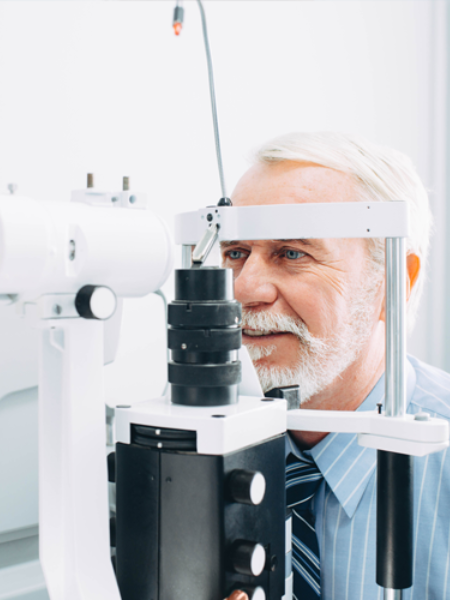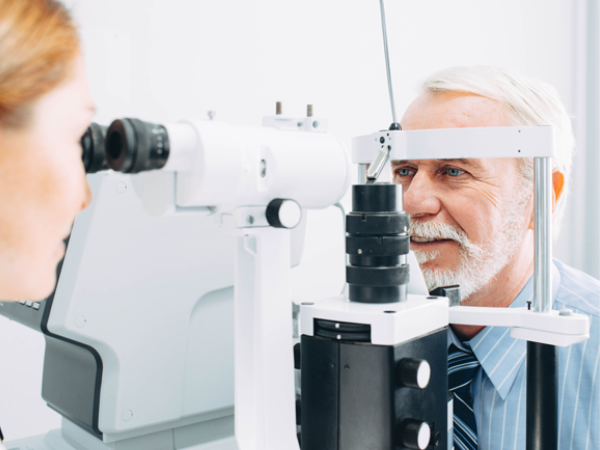Search
Search
Cataracts are cloudy areas that develop on the lenses in your eyes, making it harder and harder to see clearly. Knowing the signs of cataracts and what might cause them can help you determine when you should have your eyes checked for this condition.
The signs of cataracts might not show up right away but may develop gradually as cloudiness worsens. If you have any of these signs, you should make sure you have an eye exam done soon:


Your eyes change while you get older, which increases your risk of having cataracts. As proteins inside your lens breaks down, cloudiness can form and affect your vision. Cataracts make it more difficult for light to pass through eye lenses in order to see things clearly.
Your risk of cataracts goes up as you age, especially if you’re 60 or older. Keep in mind that you might start having symptoms when you’re younger, such as in your 40s or 50s. Other factors that can increase your risk include a family history of cataracts, diabetes or other underlying health conditions, previous eye injuries and exposure to the sun’s UV rays over the years.
If you find that the prescription for your eyeglasses or contact lenses needs frequent adjustment, this can be an indicator that your cataracts are advancing. If you’re experiencing any of the symptoms listed above, consider seeing an ophthalmologist.
At Kleiman Evangelista Eye Centers of Texas, our experienced ophthalmologists have a number of tests they can use to determine whether you have a cataract, including:
Other testing options include the use of WaveScan technology, which determines the unique topography of your eyes, and the use of a Pentacam, a camera that takes thousands of pictures of your eye in a matter of seconds, showing your doctor the distinct shape, structure, and thickness of your cornea. In most cases, the screening process takes about 1.5 to 2 hours.


Take our Cataract Self-Test to find out if cataract surgery will help you get back to seeing – and living your life.

Even when you’re doing everything “right,” cataracts can still sneak up on you. Take our quick self-test to determine if your symptoms may be signs of a cataract.
Cataracts can interfere with a number of your favorite activities, but you don’t have to wait until your vision is completely impaired to have them removed. Get in touch with our experienced team of cataract specialists today.